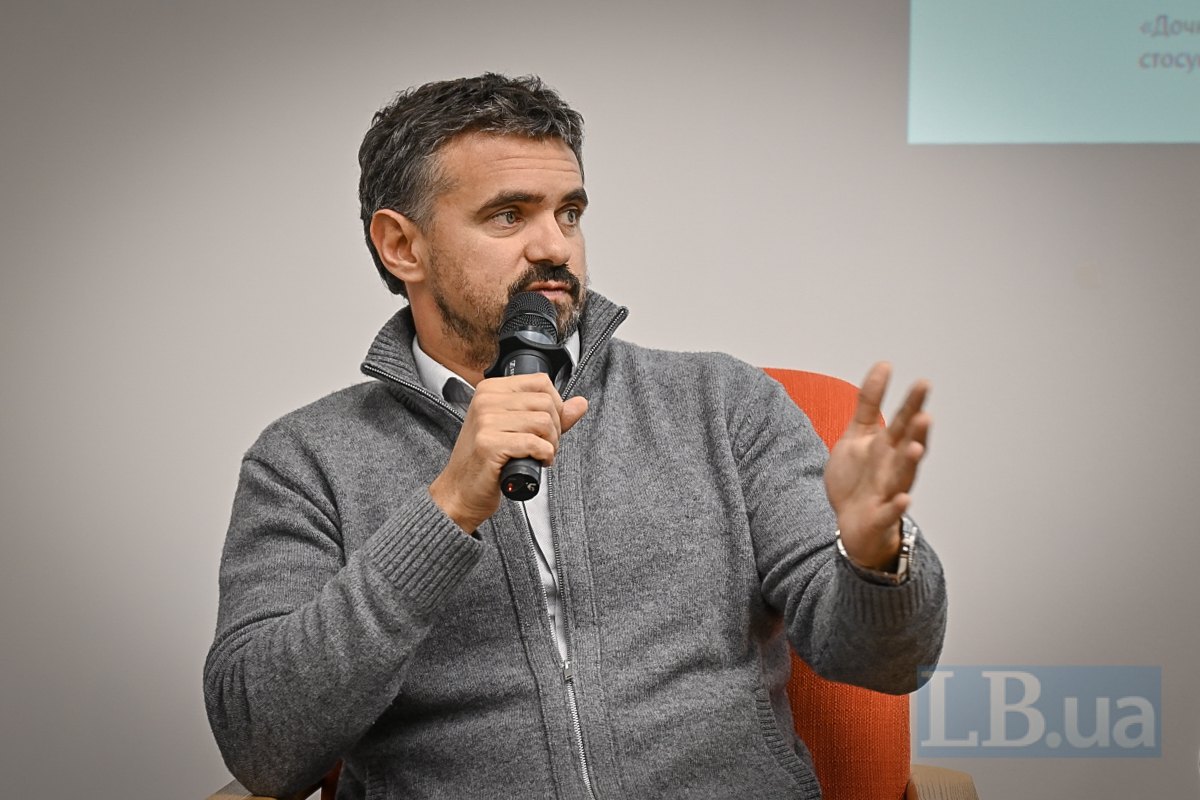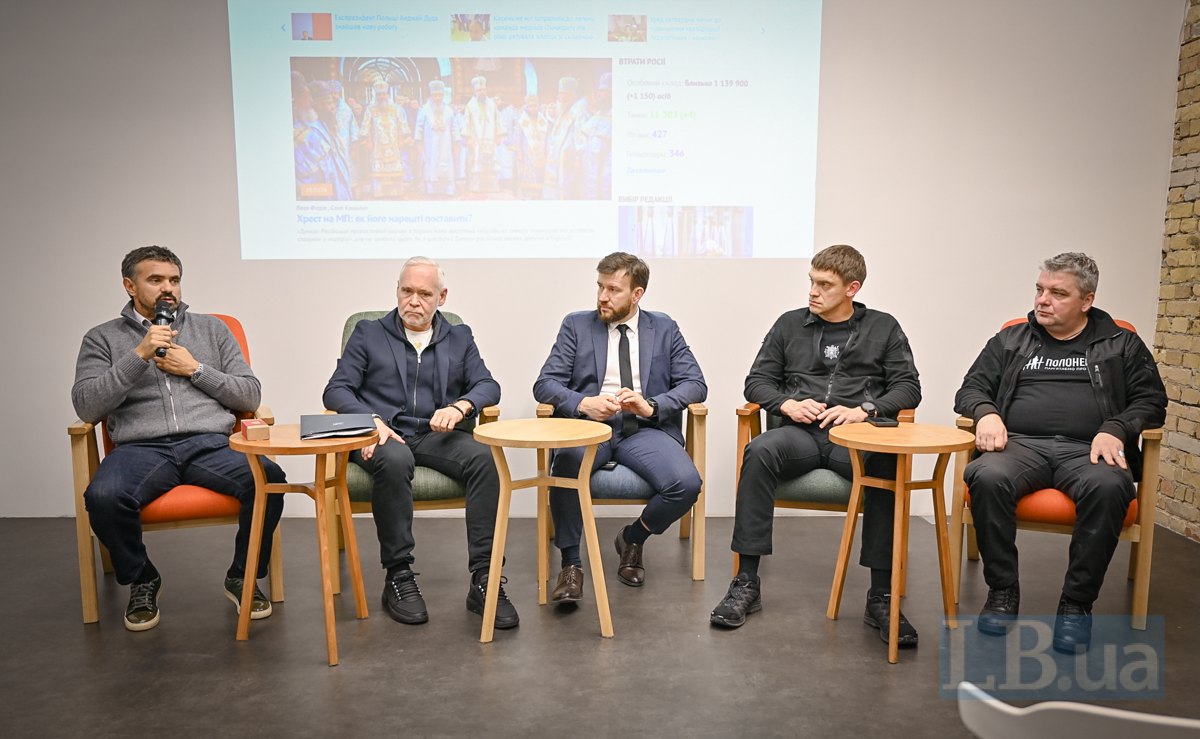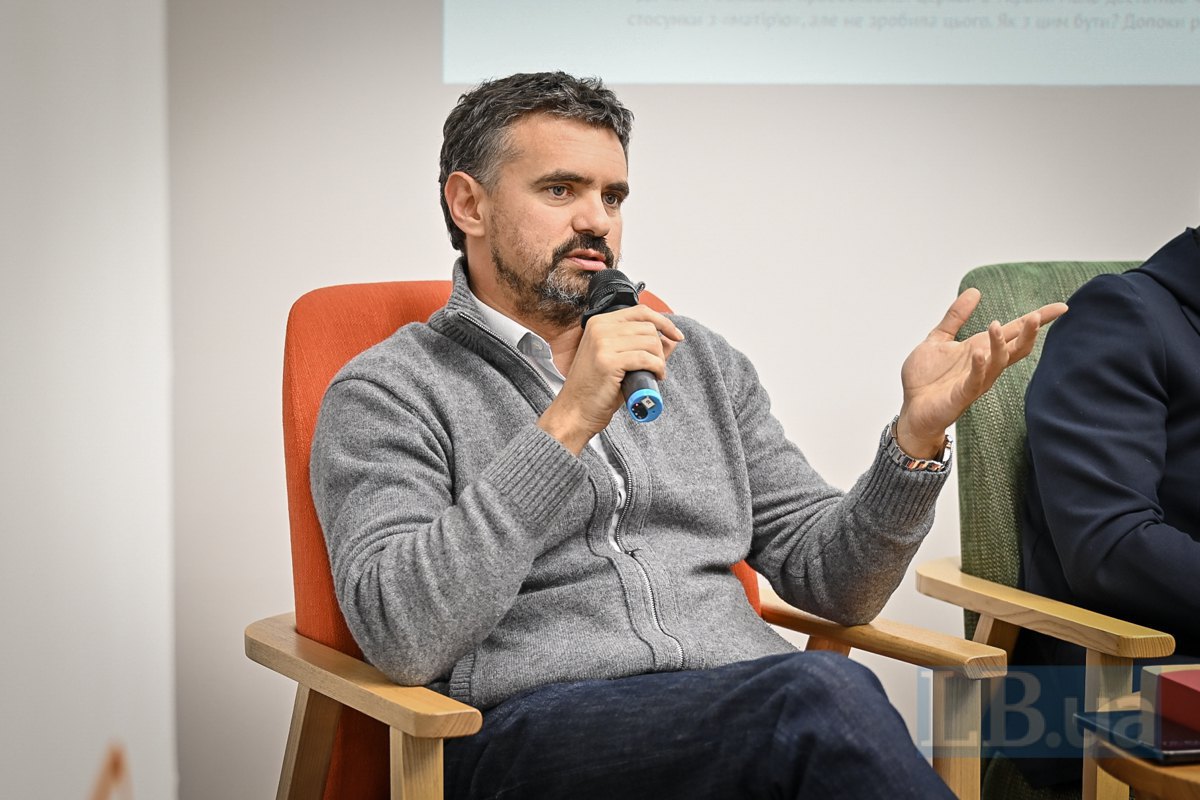
Despite the major transformations Ukrainian society has already undergone, we still retain a Soviet-style mindset when it comes to seeking justice from the state, says Ihor Liski. We’re used to thinking the state owes us something.
“It’s a convenient narrative that dates back to Soviet times — that the state is responsible for everything. You were born as the state’s property. It gives you a profession, a job, healthcare, and your only freedom is to give your life for the Motherland somewhere in Afghanistan or who knows where,” Liski noted.
But to live with dignity and freedom, he stresses, this paradigm must be rethought. The simplest way to do that is by replacing the word ‘state’ with ‘society’.
“Two missiles hit my factory. Everyone keeps asking me: is the state doing anything for you? And I ran a little experiment — I replaced the word ‘state’ with ‘society’. It changes the whole meaning. How do we — as people united in a state — respond to these challenges? That small shift in meaning starts to shape our priorities,” the businessman explained.
And during the war, Liski reminded, the first priority is the Armed Forces of Ukraine.
“The demand for fair treatment there is issue number one. How we mobilise people, how we demobilise them, how we grant leave — even within the Armed Forces, there’s complete injustice.
Some are fighting and risking their lives, while others in so-called ‘Transcarpathian cauldrons’ get the same social benefits. Some sit in a dugout, practically enslaved by their commander, while others go AWOL. Fairness here is the key to our survival,” the businessman said.

The second priority focus, Liski says, is internally displaced persons.
“If we lose these people, we may never get them back. We need to keep them — in Kharkiv, in Zaporizhzhya, in Ukraine — and give them a chance, especially those who want to act,” said Ihor Liski. “We must give them jobs, housing, and adjust the system of assistance so that people contribute to society, not just rely on the state. It’s a fine-tuned process. But if you’re working for the Armed Forces of Ukraine or for Ukraine’s economy — that’s it, you’re a priority, and we’ll fight for you. Here’s a job, retraining, housing, benefits. Don’t go to Poland — we need you here.”
Another crucial area, Ihor Liski adds, is establishing fair relations between the state and business. Today, business is the main force sustaining both the state and the Armed Forces of Ukraine through taxes. But the question is how to make it “profitable for businesses to stay, build, and look to the future with confidence — rather than think about shutting down and reopening in Poland or Romania.”
A war risk insurance programme could be one such motivating factor. At present, no business owner in Ukraine can insure their assets independently, especially in frontline regions — the financial burden would be unbearable, says the EFI Group chairman. Yet the state, Liski believes, cannot insure everyone either.

“I was involved in the Cabinet of Ministers’ initiatives to try to insure everything. I don’t really believe it’s possible, but some kind of insurance mechanism is still necessary.
I would focus especially on insuring those who are starting something new — those who take on additional risk. I’m convinced that this is already a growth driver, because all normal investors, apart from a few ‘crazy’ ones, are waiting for the war to end to reduce that risk. Because we won’t be able to insure everyone — that’s a utopia.
But focusing on those who are ready to take economic risks right now seems a much smarter approach to me. It would benefit society far more through new jobs and could attract fresh investment, including foreign capital,” the businessman noted.
In Ihor Liski’s view, social justice in a country begins with caring about ordinary people — with helping those who truly need support, rather than handing out aid equally to everyone, rich and poor alike, just because it’s easier. The focus of any initiative, Liski believes, should be the benefit of society — not the state.
“In our pursuit of social justice, we all need to answer one key question: how do we live together? What kind of country are we building? How do we ensure that everyone has a dignified place in it? That a public transport driver or a serviceman, once the war is over, doesn’t feel abandoned or forgotten — especially those who’ve lost their health. There must be an understanding that together we are far more than each of us alone, that together we form a community with the right to its own state. That if you are mobilised, you are properly equipped and supported. And if, God forbid, something happens, society will take care of you,” the businessman said.
Video version of the discussion:








